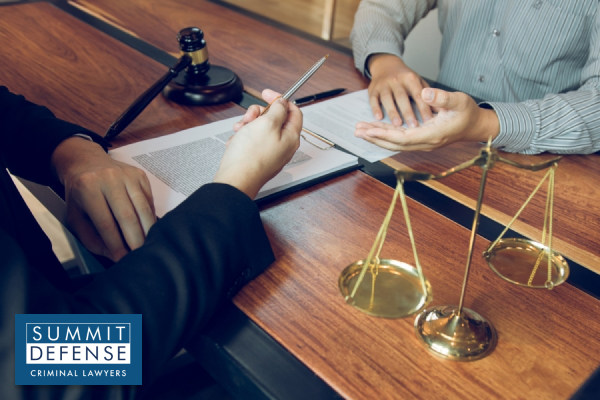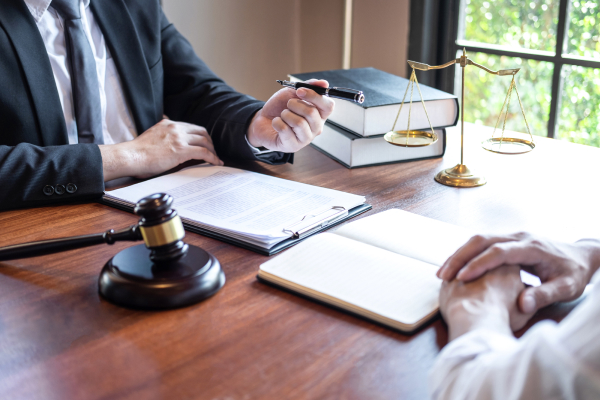Why Telling the Truth Matters
Being honest with your attorney gives them the chance to prepare a stronger, smarter defense built around your real situation.
Your Lawyer Can’t Build a Defense Without All the Facts
To create the best defense, your defense lawyer needs to know exactly what happened. Even facts that seem small or embarrassing could shape the legal strategies they choose. If your criminal defense lawyer has only part of the story, they may head in the wrong direction and miss key arguments that could help.
No matter how serious the criminal charges may be, the lawyer’s job is not to pass judgment but to protect your rights. The more your attorney knows, the better they can prepare for what the prosecution might bring up.
Surprises in Court Can Hurt Your Case
If your criminal defense attorney is caught off guard during trial because you hid something, the result can be damaging. A surprise from the prosecution can destroy trust between you and your defense lawyer and can also damage your credibility in front of the judge or jury.
Even if the goal is to keep something quiet, hiding it from your lawyer will often do more harm than good. When you're honest, your lawyer has time to prepare, respond, and protect your chances of a fair trial.
Honesty Helps Craft the Best Legal Strategy
Admitting the truth allows your defense attorney to build a strategy that matches the facts. Sometimes, when a client admits guilt, the focus may shift toward reducing harm through mitigating circumstances. This includes pointing out positive aspects of your life, a lack of prior offenses, or errors made by the police.
Telling the truth gives your attorney the power to build a defense that may help reduce charges, limit penalties, or even cast reasonable doubt on key evidence.
What You Say Is Protected by Attorney-Client Privilege
 You might be afraid to talk about what happened. But what you say to your attorney is almost always protected by law.
You might be afraid to talk about what happened. But what you say to your attorney is almost always protected by law.
What Attorney-Client Privilege Means
Attorney-client privilege means that anything you say to your attorneys in private will remain confidential. This rule allows clients to speak freely and honestly without fear that their words will be shared with others, including the prosecution or the police.
This privilege is a core part of the American justice system. It helps ensure your rights are respected and that your criminal defense is strong and fair.
Exceptions to the Rule (e.g., Future Crimes)
There are very few exceptions to attorney-client privilege. One key exception is if you tell your attorney that you plan to commit a future crime. In that case, the attorney may be ethically required to report it.
However, if you’re discussing a past crime or admitting guilt for something that has already occurred, your defense attorney cannot—and will not—report it. This protection allows guilty clients to still get help in court.
Can a Lawyer Still Defend Me If I Admit Guilt?
Yes, a criminal defense attorney can still defend you, even if you tell them you are guilty of the crime. That doesn’t mean the case is over.
Focus May Shift to Reducing Penalties or Challenging Evidence
If you admit to the crime, your lawyer may focus more on reducing the damage. They might work to lower the charges, cut jail time, or negotiate other terms that protect your future. They can still challenge weak evidence or find legal problems in how the arrest was handled.
Even in tough criminal cases, your attorney might still be able to poke holes in the prosecution’s story or show that the evidence doesn’t prove guilt beyond a reasonable doubt.
Lawyers Can Still Fight for the Best Possible Outcome
Even if you are guilty, your defense attorney’s job is to ensure the court treats you fairly. That means protecting your rights, explaining the law, and helping you avoid the worst penalties.
Whether you’re a first-time offender or have faced criminal charges before, a good criminal defense lawyer will still fight for the best possible outcome, and they’ll use every legal tool to get you there.
What Happens If I Lie to My Lawyer?
 Lying to your attorney can lead to serious problems in your case. If your story changes in court or if new facts come out, it weakens your defense and makes it harder for your defense lawyer to protect you.
Lying to your attorney can lead to serious problems in your case. If your story changes in court or if new facts come out, it weakens your defense and makes it harder for your defense lawyer to protect you.
It also jeopardizes your lawyer’s job and professional conduct, especially if they unknowingly present false information to the judge. Once trust is broken, it's difficult to work as a team. The court may also lose trust in you, which hurts your chances of winning or receiving leniency.
Being honest from the start gives your criminal defense attorneys time to plan the best course of action, reduce damage, and protect your rights under the legal system.
FAQs
 If you’ve been arrested or charged with a crime, it’s normal to feel scared or unsure. You might be wondering if telling your attorney the truth will hurt your case. You may even think staying quiet about what really happened is safer.
If you’ve been arrested or charged with a crime, it’s normal to feel scared or unsure. You might be wondering if telling your attorney the truth will hurt your case. You may even think staying quiet about what really happened is safer.

 You might be afraid to talk about what happened. But what you say to your attorney is almost always protected by law.
You might be afraid to talk about what happened. But what you say to your attorney is almost always protected by law. Lying to your attorney can lead to serious problems in your case. If your story changes in court or if new facts come out, it weakens your defense and makes it harder for your defense lawyer to protect you.
Lying to your attorney can lead to serious problems in your case. If your story changes in court or if new facts come out, it weakens your defense and makes it harder for your defense lawyer to protect you. If you're facing criminal charges, don’t go through it alone. You may feel unsure, guilty, or afraid, but none of that should stop you from getting the help you need.
If you're facing criminal charges, don’t go through it alone. You may feel unsure, guilty, or afraid, but none of that should stop you from getting the help you need.